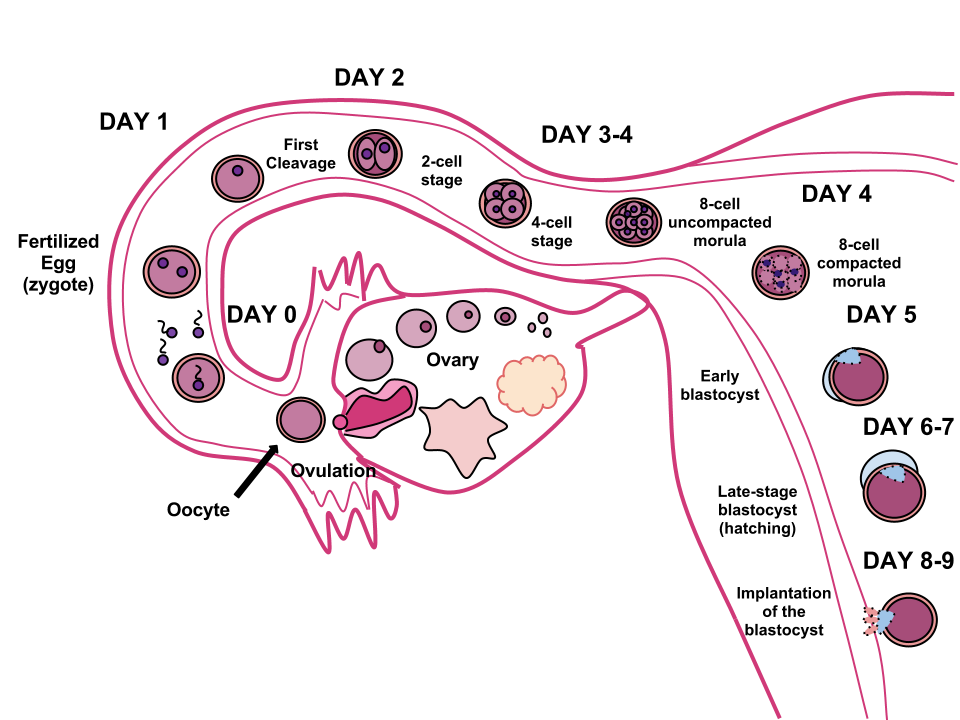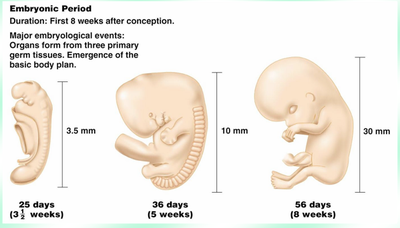Biological Beginnings: Childhood Development
Biological beginnings, in terms of childhood development, is the process of starting live. From the time a baby is forming in the mother's stomach, to the time it is born, the baby is constantly going through remarkable changes. Whether it is physical, or cognitive, there are many different stages the baby must go through. The brain is constantly developing, the body and organs are starting to from and become clear through an ultrasound.
Prenatal Development
It is important to understand that a child's developmental stages start way before the child is initially born. Everything from the time the sperm fertilizes the egg, to the moment of the first heart-beat, keeping track of certain milestones throughout these periods of time are crucial.
The Germinal Period (1-2 weeks)
The start of conception begins when the sperm gets attached to the egg and creates what is known as a zygote. Within the zygote, the genetic information of the baby starts to form and everything necessary for the baby to begin its growth is present within the cell. The zygote then begins to divide in order to plant itself in the wall of the women's uterus.

(stages of the germinal period labeled, up until the zygote becomes attached to lining of the uterus).
The Embryonic Period (3-8 weeks)
From here, what was once a multi-cellular cell implanted on the uterus's wall, becomes what is now an embryo. The placenta begins to form which is what offers the nutrients and oxygen to the baby inside the mother's stomach.
Certain body parts of the baby begins to form like their head, stomach, and the heartbeat. Moreover, the baby's organs are also starting to form, and are fully functioning.

(showing the different stages of of the embryonic period, and the development of the baby).
The Fetal Period (9-40 weeks)
During this period, around the second trimester, the baby has nails, teeth, and hair are developed. The genitals are also formed, which is around the time that doctors are able to tell the gender of the baby. The fingers and toes are almost fully developed and the fingerprints are already visible, which makes up their identity.
Reflexes are starting to become almost fully functional, and their respiratory system is continuing to develop.

Chales Darwin
One theorists that helped shaped what we know as the development of a human being and its genetic information is Charles Darwin. One thing Darwin did was establish the idea that a living being is constantly growing and changing throughout the different stages of life. Specifically, he backed the idea on how the environment of a living thing impacts the way they change, and the outcome of their growth. This is relatable to the growing stages of a child in the way that the way a mother cares for her baby at an early stage of life ultimately has a lasting effect of the baby. Just like the environment a baby is raised in, will change significantly a baby's development physically, psychologically, and emotionally.
Moreover, Darwin's explanation on genetic information backs how a baby get its attributes. A baby's genetic information is formed a conception which is where you could see the traits from family members in your child.
Ways to Promote Healthy Development
Promoting healthy growth in kids is one of the most important things when it comes to their development. Whether its physically, or emotionally, kids need a healthy support system as they are being raised. Some activities a parent could do to ensure this, are listed below:
- Reading to kids daily - ensures that your child is growing their thought process, knowledge, and vocabulary constantly
- One-on-one play - offering your child games and activities that require physical movement, and more use of their brain is important
- Healthy amount of sleep - the most important thing for a child is rest
References:
Garner, T., Taylor, A. P., & Than, K. (2022, October 14). Darwin’s theory of evolution: Definition & evidence. Live Science.
- Pressbooks. (n.d.). Periods of prenatal development. In Human development. Retrieved June 12, 2025,
Jefferson Health. (n.d.). What you should know about the stages of prenatal development. Retrieved June 12, 2025

Comments
Post a Comment